Test Your Knowledge!
GP Refresh - Parasite Control in Cats and Dogs
Questions and Answers
An 8 week old Cavalier King Charles Spaniel with loose motions of at least 3 days (for as long as owners have had puppy) presents for its first vaccination.
In house faecal flotation reveals ova shown below.
What parasite has shed the ova? Is it likely to be contributing to the diarrhoea and what zoonotic risk does it represent? How often should this puppy be treated for roundworms?
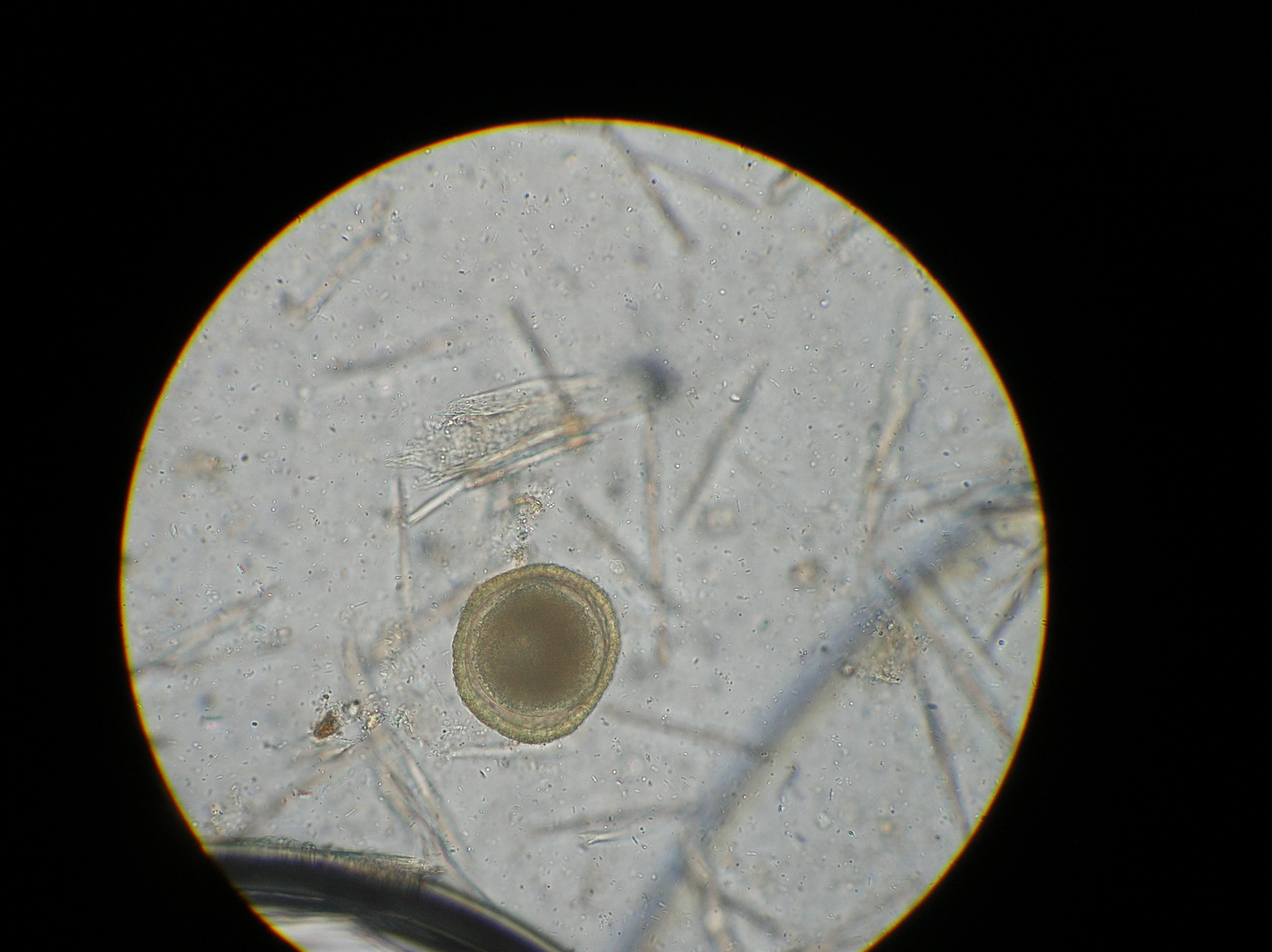
Answer
Toxocara canis.
This is a common finding in the faeces of puppies. T.canis may contribute to diarrhoea but is of greater zoonotic significance with the potential for environmental contamination.
Unembryonated eggs such as this one do not pose an immediate risk to owners but once embryonated in soil, sand or fur can cause a range of disease syndromes in people if ingested. These include ocular and visceral larval migrans.
The puppy should be treated for the infection and the diarrhoea investigated further if not resolving. Macrocyclic lactones, octadepsipeptides, tetrahydropyrimidines and benzimadazoles are all effective against T.canis and will also treat hookworm infection if present. Puppies should be treated monthly for roundworms until at least 6 months old.
How did you get on?
This question and answer is from Ian Wright, tutor on the upcoming Online Mini Series Course ‘GP Refresh- Parasite Control’. Get all the help you need with your small animal patients on this course. Read on for full course information.
GP Refresh - Parasite Control in Cats and Dogs
Online Mini Series Course
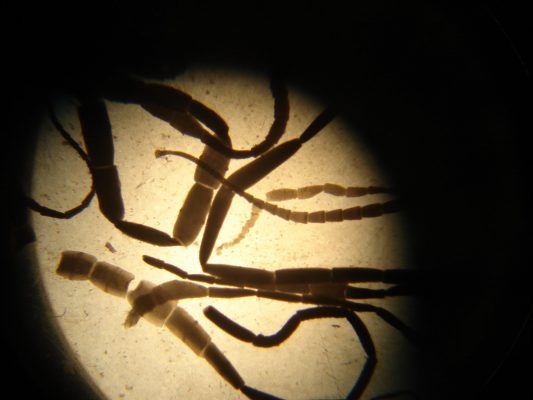
- Understand the importance of hygiene, diet and responsible disposal of faeces in reducing zoonotic risk
- Review the tick-borne pathogens, present in the UK of relevance to cats and dogs
- Understand the rationale for year round flea control in UK cats and dogs
- You have a whole year’s access to recorded sessions and study notes for reviewing key points
- Superb value for money – you learn without travelling or paying for accommodation, childcare or petcare
- Watch the live meetings OR the recordings on your mobile, PC or tablet
- Self-assessment quiz to ‘release’ your 8 hours CPD certification
This is the second online Mini Series I have done, and I have found both so convenient and flexible as they allow me to work around my small children.
I enjoyed it and enjoyed being able to do at my own pace. It’s much easier to do the webinars when I have quiet time at home or in practice.
What will I learn on this course?
Session 1
Worm control
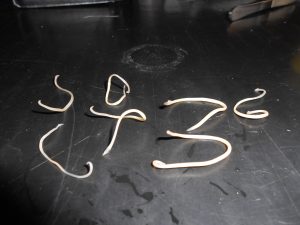
- Recognise the different types of parasitic worm of veterinary and zoonotic significance in UK cats and dogs
- Understand the available tools for their diagnosis, their importance and limitations
- Appreciate the role of routine preventative treatment in worm control and the importance of taking a risk based approach
- Review current evidence for anthelmintic resistance and how it differs in cats and dogs when compared to ruminants and horses.
- Understand the importance of hygiene, diet and responsible disposal of faeces in reducing zoonotic risk
Session 2
Fleas
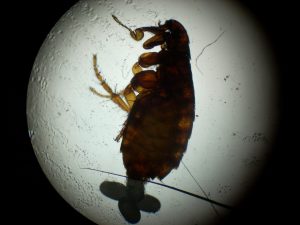
- Revise the veterinary significance of flea infestations and their zoonotic implications
- Review the zoonotic pathogens transmitted by Ctenocephalides felis, particularly Bartonella henselae and Rickettsia felis
- Understand the rationale for year round flea control in UK cats and dogs
- Understand factors leading to flea control breakdown and how to minimise them
- Review flea resistance and environmental contamination with insecticide and how client education and compliance can limit these.
- Be able to control existing household infestations.
Session 3
Ticks
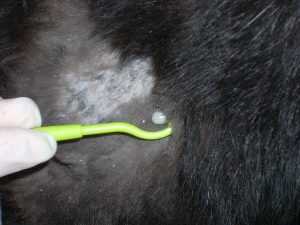
- Understand the factors driving tick exposure.
- Review the tick-borne pathogens, present in the UK of relevance to cats and dogs
- Explore their zoonotic potential
- Be able to recognise the risks of exposure and to put effective tick prevention measures in place
- Be able to give basic tick prevention advice to pet owners to keep themselves safe, while not crossing the line into human medical advice.
Meet the Presenter....
Ian Wright
BVMS, MSc, MRCVS

Ian is a practising Veterinary surgeon and co-owner of the Mount Veterinary Practice in Fleetwood. He has a Master’s degree in Veterinary Parasitology, is head of the European Scientific Counsel of Companion Animal Parasites (ESCCAP) UK & Ireland and guideline director for ESCCAP Europe.
Ian has over 100 published peer reviewed articles and papers, and is an editorial board member for the Companion animal and Vet CPD journals. He continues to carry out research in practice including work on intestinal nematodes and ticks.
Attend the Live Sessions or watch the Recordings later - it's up to you!
The content of the Mini Series will help me very much in my work in practice. It will give me confidence to approach cases in a logical way and reach a working diagnosis and treatment plan, whilst recognising where specialist advice and referral is appropriate.
Session 1 - Friday 5th August 2022 2pm-4pm
Session 2 - Friday 19th August 2022 2pm-4pm
Session 3 - Friday 9th September 2022 2pm-4pm
No special equipment required... just a decent broadband connection
It doesn’t matter……all sessions are recorded and you have access to them for a full 12 months after the course.

Take advantage of the easy Online Mini Series™ format
Just £497 + VAT*
Overseas customers outside the UK will not be charged VAT.

Price includes...
- All 3 sessions
- Notes and quiz (8 hours CPD)
- PLUS unlimited access to recordings and all course materials for 12 months!
- No traffic jams or accommodation hassles
- No child or pet care to arrange
- No rota clashes to worry about and no locum cover needed
Just great CPD and a valuable ongoing resource

100% Money Back Guarantee
Buy with absolute confidence as your purchase is protected by our 100%, no quibble money-back guarantee
Very thorough and comprehensive courses. The course notes are a great addition too.

Need Some Help?
Have A Question?
Please call us on:
0151 328 0444Alternatively email
webinarclub@cpd-solutions.comWe will be delighted to help. Thank you!